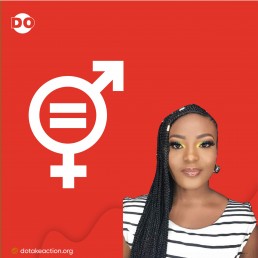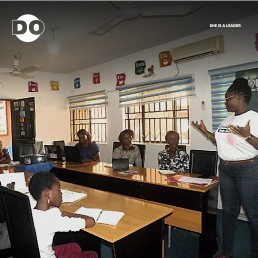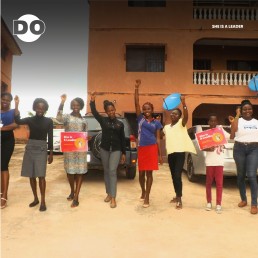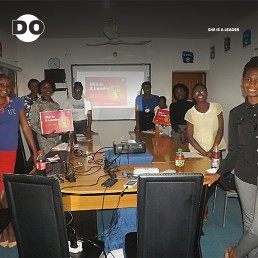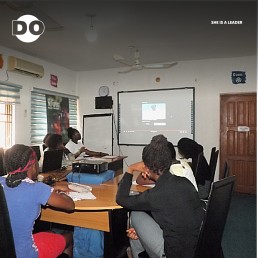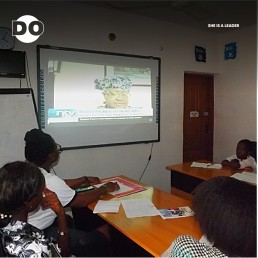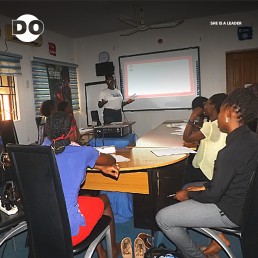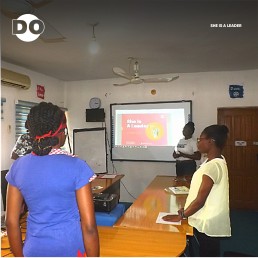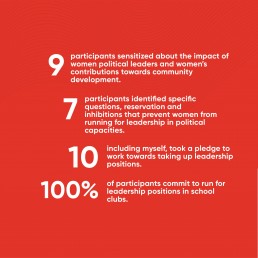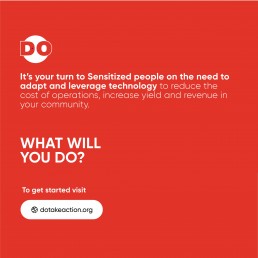THE NEED
Girls and women have the right to participate in civil society, to vote in elections, to be elected to government office, to serve on boards, and to have their voices heard in any process that affects them, their families, and their communities. Investing in the right of girls and women to political participation is a necessary step toward global gender equality and democratic governance.
According to a WomenDeliver report, investing in girls and women has a multiplier effect that benefits not only individual women but also families, communities, and countries. According to studies, increasing women’s political participation leads to greater investments in education, and companies with female board representation have a higher ROI. Gender balance in politics, according to research, promotes gender balance in the workforce, which could double global GDP growth by 2025.
Women have historically been underrepresented in government and other institutions in many countries. This historical trend continues, despite the fact that women are increasingly being elected as heads of state and government. The global participation rate of women in national-level legislatures is 24.5 percent as of October 2019. In 2013, women made up 8% of all national leaders and 2% of all presidential positions.
This potential for effective leadership shown by women is what prompted Olushola Balogun to set out on a project titled “She is a Leader” under the DO-Take Action umbrella, to sensitise women on their rights to inclusion in national political leadership. The Balogun is a social change agent who is passionate about gender equality and the inclusion of women in politics at all levels, especially nationally. She believes that given the opportunity, women could turn the odds of Nigeria favourably.
The project falls under Gender Equality And Women’s Empowerment/Women in Politics; a program that seeks to encourage young girls to aspire for leadership in Politics.
She carried out the project at the Federal University of Technology, Akure, Ondo State. It entailed the following activities:
- A presentation on the Roles of women in politics, Major political challenges, and Opportunities of the girl child in politics
- A film screening and discussion groups highlighting women in politics
- Platforms for the participation of the girl child in politics
- The participants took the She Is A Leader test online
In the course of the project, a minimum of 10 participants were sensitized about the impact of women political leaders and women’s contributions towards community development. The participants scored average on the She Is A Leader test and identified specific questions, reservations and inhibitions that prevent women from running for leadership in political capacities. The participants pledged to run for leadership positions in school clubs. A minimum of 8 participants pledged to advocate for a She is a Leader in their community.
Balogun has done her bit in ensuring that the female folk have a say, a stand, contribute to the societal development and hold elective offices in government, given equal treatment with the male counterpart not to be intimidated/neglected by the male colleagues. What action are you taking in your community?
If you enjoyed the story and would like to read more stories like this, sign up for our monthly newsletter to get notified of new stories.
Also, do well to follow our social media handles for more engaging and entertaining content on issues that affect YOU.
